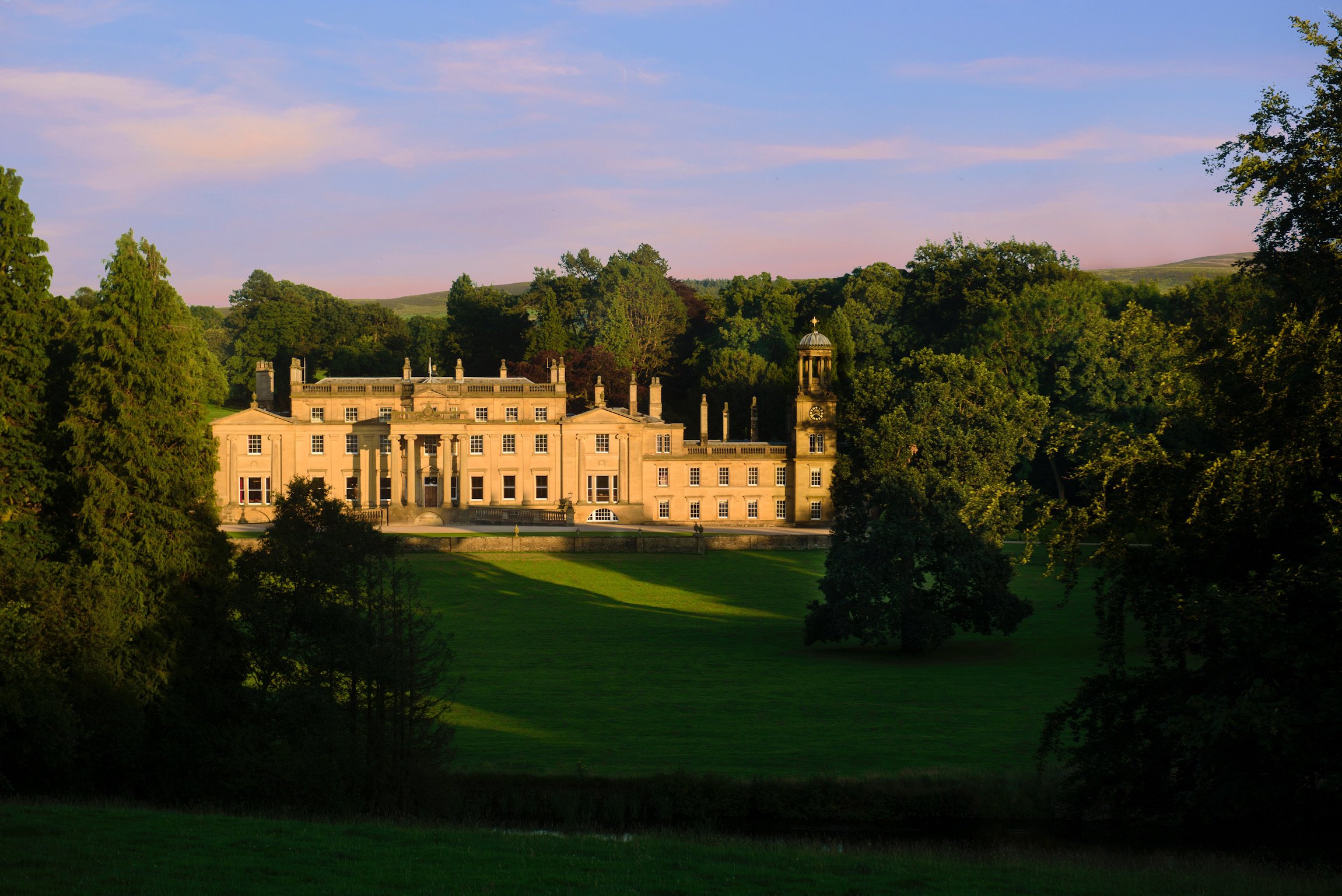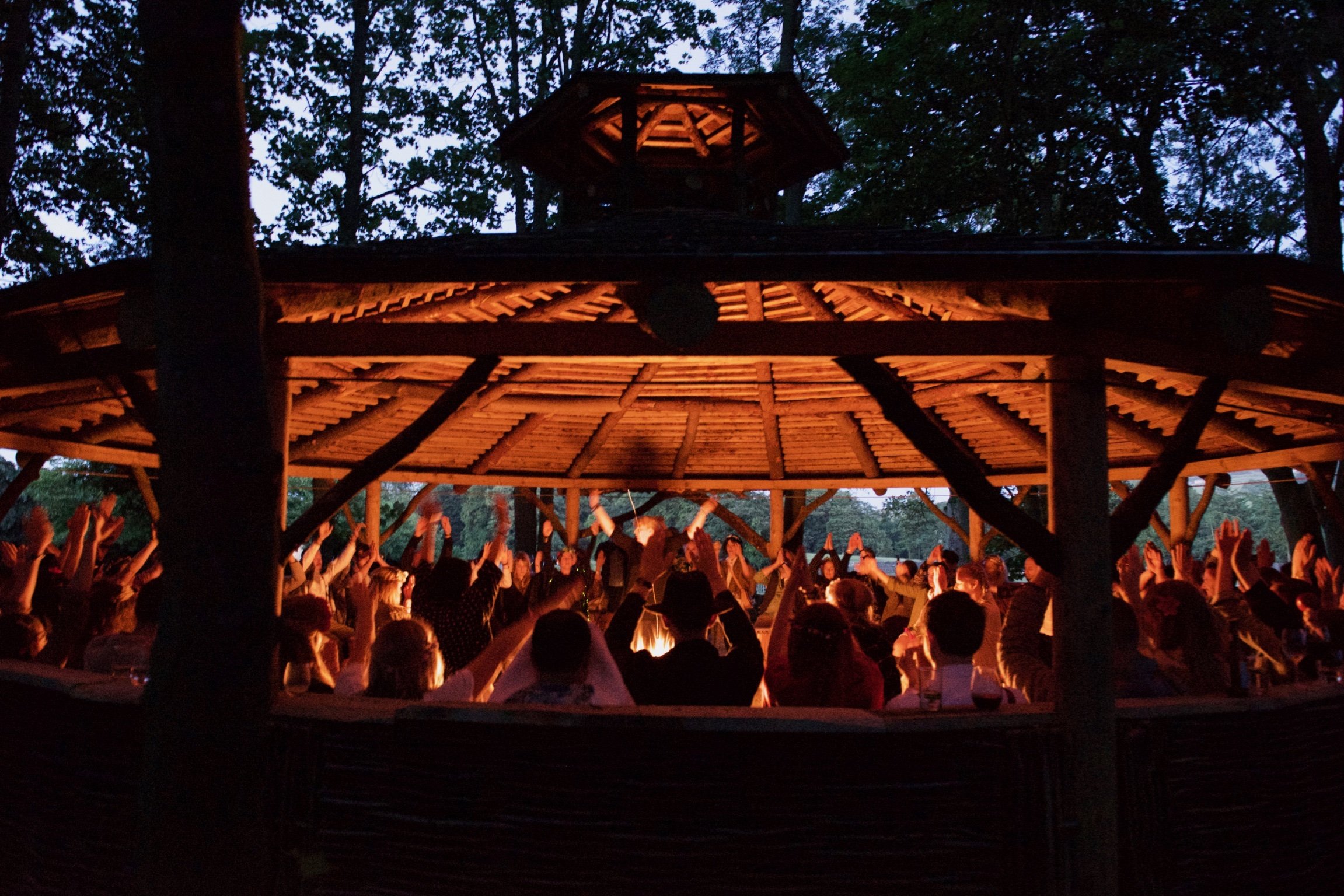Delving into deep rest at Broughton Sanctuary in England
Nirpal Dhaliwal reviews a spiritual retreat deep in Yorkshire nature, where he discovers a profoundly personal sacred ritual, some sombre faces from history and the mettle to face his fears
Profound Rest – the name of the retreat - was exactly what I was hoping for when I arrived at the grand 16th-century Broughton Sanctuary in Yorkshire. Exhausted by the previous two years – in which I’d suffered the deaths of a sister and my mother – my body, mind and soul craved restoration and replenishment.
I found the history of the building, part of a 3,000-acre estate that has belonged to the Tempest family for 1,000 years, immediately fascinating but also intimidating; every wall of the house is plastered with art accumulated over the generations – including masters such as Canaletto and Millet, and every hallway is lined with antique furniture and sculpture. The atmosphere felt museum-like and imposing and took getting accustomed to.
“I had arrived at Broughton wearing a hard armour of grief and misery, but left feeling much softer and more hopeful. It didn’t take away my pain, but I was more accepting of it; knowing it to be a vital unavoidable part of life; to be engaged with, not wished away”
My room, ‘the captain’s’, was a lavish Carolean boudoir replete with four-poster bed and walls adorned with classical portraiture that was also somewhat overwhelming. Faces from distant history staring down at me from all sides. One lavishly bewigged character, straight out of Pepys’ Diaries, had a dour glare that suggested he couldn’t wait for me to leave.
The first few nights were eerie; the Yorkshire wind and rain outside brought a Baskerville intensity to the room. The house, I was assured, wasn’t haunted – despite long-ago residents having been hung, drawn and quartered on the grounds. The bathroom was magnificent: a huge and thankfully undecorated space, in which I could relax in the tub without being watched by sombre figures from antiquity.
I arrived feeling the same weariness I’d been carrying for so long, but also very shy about how I’d be received in my sluggish condition by the others. It was a relief when I met them during the group welcome and heard their reasons for attending. All of the 16 guests – 14 women, alongside another man and me, aged from our mid-30s to late midlife – were there to find calm and clarity to move forward with important life issues: career changes, relationship and family matters, and also bereavement. I was not alone and could be myself in a sympathetic tribe.
Mornings began with smoothies and herbal teas before gentle yin yoga sessions, expertly led by the ethereal retreat host, Paris Ackrill, who managed our varying levels of ability with sensitive aplomb, assisting me into positions I found difficult and propping me up blocks and cushions when needed, without making me embarrassed among the much more flexible women in the room. Accompanied by her personal playlists of ambient music, these sessions eased me out of my pre-coffee morning fogginess, opening my body and mind for the day ahead.
Breakfasts were taken communally in the dining room: organic cereals, fruits and cheeses, and also wonderful poached eggs on home-baked breads, accompanied with roasted tomatoes or crushed avocados. It was perfectly easy to be vegan, but smoked salmon and dairy were plentiful for those who wanted them.
Afterwards, we attended the first of two daily spiritual discourses with the retreat’s resident mystic, the voluble Cornelius O'Shaughnessy, a meditation teacher who’s spent 25 years studying the traditions of India and the East, as well as those of ancient Britain. For the first few days, I found lengthy talks on the teachings of Jesus, the Buddha, Ramana Maharshi and others quite irritating. I’d been expecting less talk and more meditation, and I was already familiar with a lot of what he said having done a lot of my own studying, but those who were new to such discussions told me they found him illuminating and thought provoking.
Lunchtimes consisted of abundant portions of salads and soups, changed daily and kept interesting. The food at each meal was all organic and sourced and produced by Jack and Jake of Yorkshire Nourishment, specialists in lifestyle and wellbeing catering. The dinners they provided were delicious and hearty: the Thai curries and risottos often lured me back for seconds.
After lunch came nature-based activities, walking through the estate’s woodland and being encouraged to pay attention to our senses: the sound of rain or a stream, the smell and colour of plants, the texture and variety of forest life. These were followed by the second lengthy discourse with Cornelius.
It was after three days that I felt the retreat kick in. We went wild swimming, something I’ve not done before. And though I found my first plunge horrifically cold and had to get out after seconds, I did find the mettle to endure not just one but two two-minute ice-baths in the barrels nearby, manned by a very supportive Jack and Jake, after which I braved the pond again. This time, my body now accustomed to the freeze, I found it exhilarating. Getting out, I realised that overcoming my resistance to the water was the first positive achievement I’d had in years. The woodland sauna I took with the other afterwards was one of the most relaxing I’ve had.
From then on, even Cornelius’ lectures began to enthral me. I’d been softened enough to listen and even engage with the discussions as he made the connection between spirituality and nature: the necessary cycles of birth, life, growth and inevitable death, that are painful and mysterious, and must be accepted for us to enjoy life’s beauty.
His sessions later in the week involved meditations with instructions on ‘spinal breathing’ techniques to deepen the practice. Paris ended them with deeply hypnotic sound baths. The week, I began to realise, was a gentle descent into deepening layers of rest and reflection.
The magic of the week came alive after three days of semi-silence. Encouraged not to speak (the rule wasn’t strictly enforced on the chattier guests), there was a quietness during this time, which, assisted by spa treatments – a session in a flotation tank and excellent Swedish and reflexology massages – soothed me into the state of ease I had been craving.
The evening of kirtan to break the silence felt miraculous. I found myself in a flood of tears singing chants I had sung with my mother in temples as a child. That night I dreamt of her, beautiful in a regal sari, for the first time since her passing ten months before. I thought of her a great deal the next evening, when we performed a sacred ceremony to honour the divine feminine in nature and ourselves, reflecting on my mother’s love. Her presence made the ritual a genuinely sacred one for me.
I had arrived at Broughton wearing a hard armour of grief and misery, but left feeling much softer and more hopeful. It didn’t take away my pain, but I was more accepting of it; knowing it to be a vital unavoidable part of life; to be engaged with, not wished away. I came away with a richer appreciation of myself as a living being in nature; more compassionate towards myself and everyone else who comes into the world and experiences its cycles.







